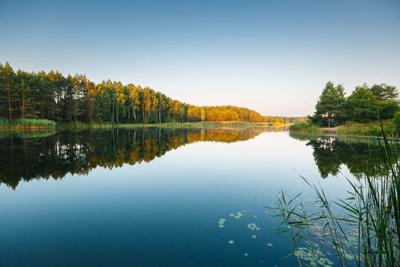Despite the sunshine, the social opportunities, and a growing national focus on mental wellness, a troubling trend is emerging: we’re becoming a nation of homebodies. And nowhere is that more evident than among Gen Z.
As summer rolls in, most Americans traditionally head to parks, trails, beaches, and patios to soak up the season. But according to new research from Tractor Supply, the youngest adult generation isn’t joining them.
In fact, their relationship with the outdoors may be slipping into crisis territory.
In a national survey of over 1,000 Americans, Tractor Supply set out to explore how our outdoor habits impact happiness, and the results are a wake-up call. The average Gen Z respondent spends a staggering 94% of their week indoors and logs over 206 hours per month in front of screens. That’s 134% more time scrolling than stepping outside.
This isn’t just about cabin fever. The data reveals a direct link between time spent glued to devices and increased stress. Americans who spend more than 40 hours a week on their phones are 20% more likely to report feeling stressed than those who spend less than 10 hours a week. And while every generation battles the lure of technology, Gen Z is struggling uniquely with loneliness: nearly half say they stay inside because they have no one to go outside with—a higher rate than any other age group surveyed.
Why Going Outside Still Matters
This trend runs counter to a growing body of scientific consensus: outdoor time isn’t just refreshing—it’s essential. From reduced anxiety and depression to improved focus and creativity, spending even 20 minutes a day outside has measurable impacts on mental health.
“For young adults especially, nature can offer a powerful reset,” says a representative from Tractor Supply’s research team. “Time outdoors increases serotonin, reduces cortisol levels, and fosters a sense of connection—both with others and the world.”
Yet as digital life fills every free moment, these benefits are slipping through the cracks. Social media apps promise connection but often deliver comparison and isolation. Algorithms keep us scrolling indoors instead of experiencing real weather, real light, real life.
The Great Reprioritization
Gen Z’s relationship with nature may be waning, but it’s not irreversible. In fact, many are already seeking balance. “We’ve seen an uptick in interest around glamping, digital detox retreats, and off-grid travel,” says a Travelbinger editor. “It’s clear that the desire to unplug is there—it just needs to be made easier and more accessible.”
That’s where brands, communities, and even families can step in. Whether it’s organizing group hikes, reintroducing backyard barbecues, or simply encouraging screen-free afternoons, small actions can drive a cultural shift.
Tractor Supply’s campaign is part of a broader effort to remind Americans of the joy and necessity of spending time outdoors. Their study supports the idea that green space is more than a luxury. It’s a lifeline.
Rediscovering Outside
At Travelbinger, we’ve long advocated for immersive travel. Whether it’s trekking through Joshua Tree, camping in the Adirondacks, or just taking a walk in a city park, the outdoors is one of the last free, truly transformative spaces we have access to.
This summer, the challenge is clear: reclaim your time. Step away from the algorithm and back into the world. Invite a friend. Sit under a tree. Watch the sun go down without trying to capture it.
Because nature doesn’t need filters, and neither do we.






